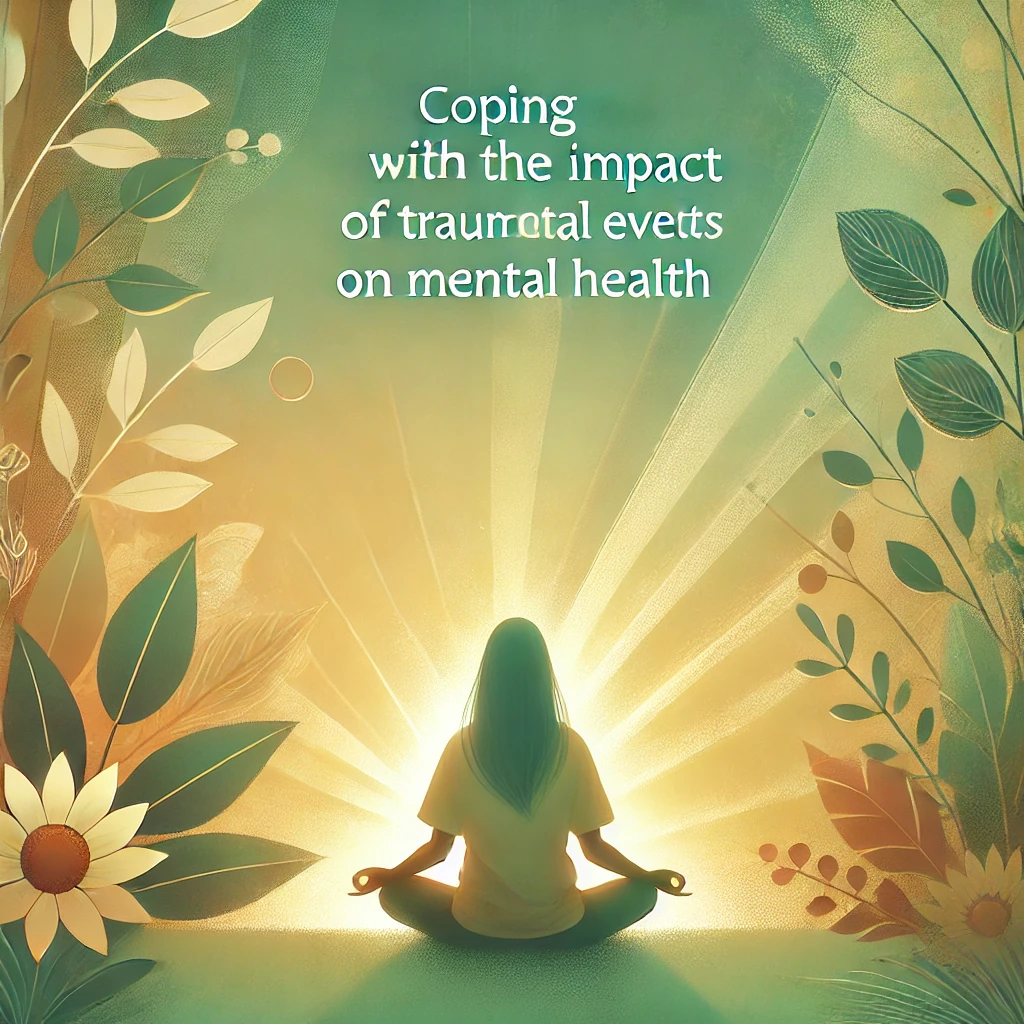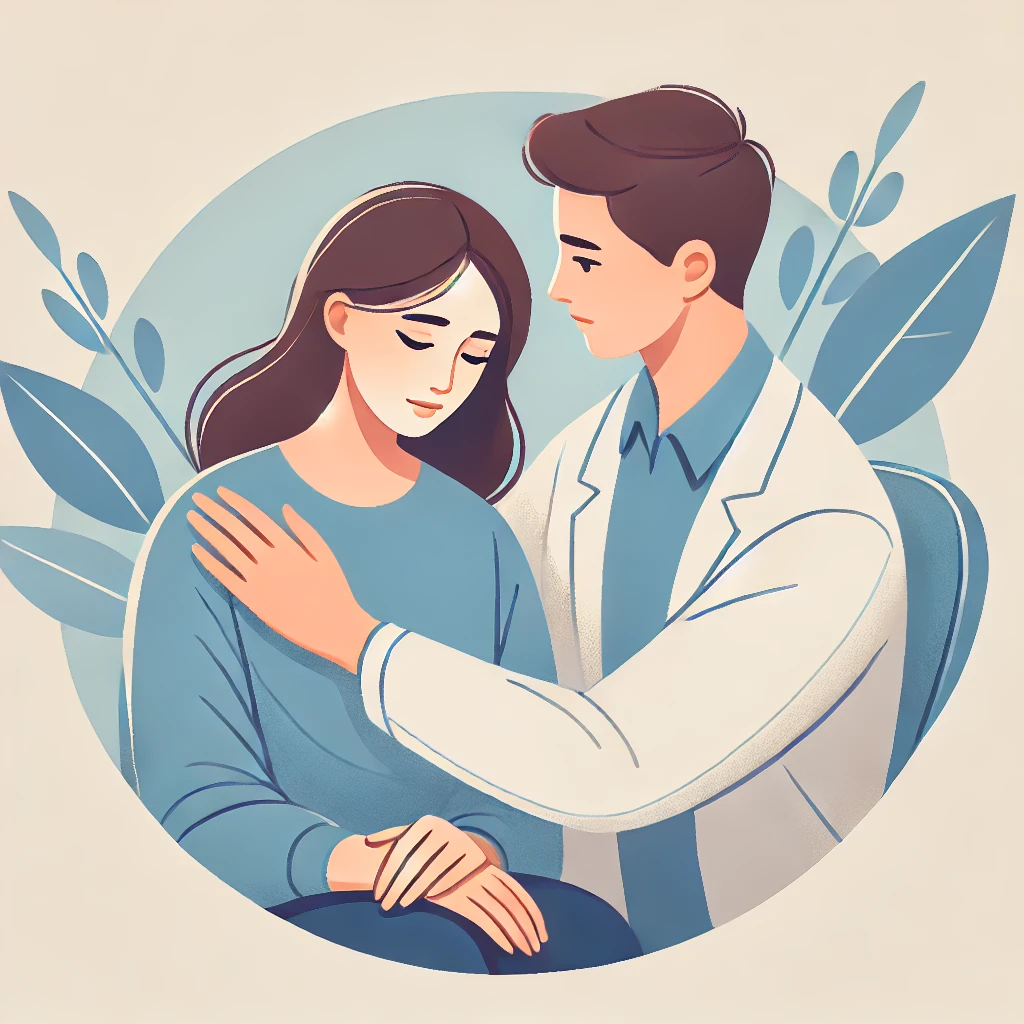Today, we will dive into deep knowledge about the Impact of Traumatic Events on Mental Health. Trauma influences mental health in a major way. We need to know that traumatic events can have serious implications for the mental health of survivors and it is important to be aware of physiological symptoms. Hence, responses are appropriate to seek proper help. In this blog post, we will discuss the impact that trauma can have on our mental health, some ways in which to cope, and treatment options for those who develop issues as a result of experiencing such events.
Table of Contents
Understanding the Impact of Traumatic Events
Trauma is the body and mind’s response to overwhelming events…stemming from one environment, or an experience that individuals perceive as life-threatening. Traumatic events can be anything from natural disasters to abuse (physical or sexual), a car crash, or any violent incident. Trauma appears in a myriad of ways, some develop it to be resilient while others develop mental health issues.
How Much Trauma Affects Mental HealthDepends On Who You Are According to Your Age, Personality and PreviousAAptraumathe earlier age a person experiences traumatic events the longer they remain in their systems. For example, traumas happening to children are not likely handled the same way that an adult would deal with trauma, and persons who have a history of preexisting mental health disorders may be more prone or susceptible to those effects. To provide the most effective support and interventions, these differences must be understood.
How Trauma Affects Mental Health

There are strong psychological reactions to trauma that can be immediate including shock, denial, and fear. The natural process of defense mechanisms is for these responses to evolve into more severe mental health conditions if left untreated. The cumulative damage of traumatic events on mental health is often realized as Post-Traumatic Stress Disorder on a long-term basis – involving flashbacks, nightmares, and debilitating anxiety.
Besides PTSD, trauma can cause other mental health conditions such as anxiety disorders, depression, and substance abuse. This can significantly impact someone’s relationships, work, and overall quality of life. Without identifying the signs and seeking help before it’s too late, that effect can linger long after traumatic events have passed.
Signs of Trauma-Related Mental Health Problems
Symptoms can appear as a broad range of traumatically based mental health diagnoses. Symptoms of Post-Traumatic Stress Disorder (PTSD) may involve reliving the trauma through flashbacks or nightmares, avoiding situations and reminders that could trigger memories of the traumatic experiences, as well as feelings of anxiety and irritability. The symptoms can interfere with daily activities and cause emotional problems such as depression.
Most trauma survivors also commonly experience anxiety and depression. Things like constant worry, panic attacks, or things even physical such as your heart racing faster are just signs of stress. Depression might appear as being sad all the time, not wanting to do anything that you enjoyed before, and feeling hopeless. Recognizing these symptoms are important, as the earlier action is taken to seek help and support; the sooner appropriate measures can be put in place.
Dealing With the Traumatic Effects of Events on Your Mental Health

An integrated approach is needed to tackle the effects of traumatic events on mental health. Therapy and counseling are frequently what those patients turn to, offering a secure space to work through the trauma of socialization along with learning coping mechanisms. Specifically, when it comes to addressing mental health concerns related to trauma, Cognitive-behavioral therapy (CBT) and Eye Movement Desensitization and Reprocessing (EMDR) are among the treatment modalities that work best.
Self-care too – such as regular exercise, eating well, and mindfulness practices – assist in your mental health journey. Whether it be through support groups or community resources, these connections help us find commonalities between those who have gone through similar traumas. A support network is a crucial part of healing and resiliency.
Treating Trauma-Related Psychological Disorders
Scientifically proven treatments for trauma-related mental health problems exist and can help ease these symptoms. Cognitive behavioral therapy (CBT): CBT helps individuals deal with negative thoughts and behaviors that lead to trauma. There is also success shown in Eye Movement Desensitization and Reprocessing (EMDR), another evidence-based therapy for PTSD.
For participants with a trauma-related mental disorder, medication also can help control anxiety and depression. In addition, holistic approaches – like mindfulness exercises and stress-reduction techniques including yoga – are supporting traditional therapies and helping to balance out our overall well-being. You can work with a healthcare provider to develop an individualized treatment plan.
Supporting Loved Ones Affected by Trauma

Supporting loved ones impacted by trauma is to first recognize the signs as well and second place, creating a supportive atmosphere based on understanding. Promote forms of open communication and listen without judgment. Validate what they are feeling and going through but encourage them in a gentle way to talk with someone who is mentally healthy if necessary.
Developing a safe space requires patience for the healing process after trauma can take time. The ask could also extend to accompanying them to therapy sessions or helping them identify resources. Just know that your help will certainly hold a very special place in their healing/recovery process.
Support for Trauma Survivors
Fortunately, trauma survivors have many resources to help them on their journey toward healing. The National Center for PTSD and the Anxiety and Depression Association of America are organizations that offer a wealth of information on their websites including treatment options. Hotlines such as the National Suicide Prevention Lifeline offer help for people in crisis right away.
Social forums and online communities Communities can provide a sense of belonging and comfort that you are not alone or isolated in your trauma; and that others have faced similar experiences. Read more books and educate urself on trauma &mental health it will provide different tips to cope as well. They are a great resource to empower trauma survivors and support their mental health recovery.
Conclusion
The effects of traumatic events on mental health are deep-seated and multi-layered. When we learn about the impact of trauma, recognize symptoms in ourselves and when individuals seek out the proper help by reaching out to vast resources available, etc. healing is real!!! No form of trauma deserves to be dealt with alone, so if you are someone around you who is facing the aftermath of trauma – do not waver in reaching out for help. Having this supportive environment when discussing trauma and how it affects one’s mental stability is the first step in living a better, more fulfilling life.
Share your thoughts or experiences in the comments below on how you are making it more accessible for everyone. Please subscribe to our channel for articles on other mental health topics if you find this article beneficial. You may also enjoy some of our other articles which cover trauma and recovery. The first step toward mental health recovery is getting educated and empowered.






















